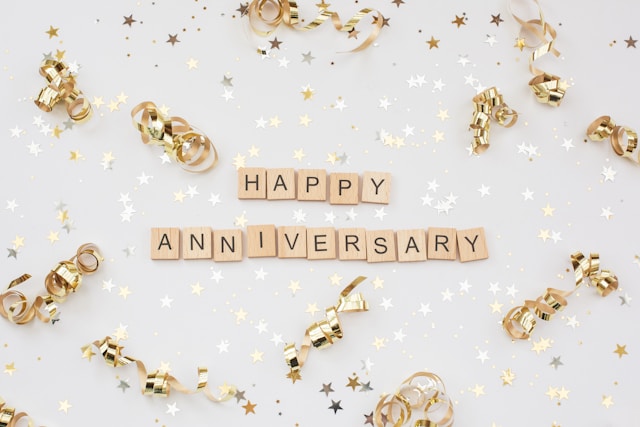Please allow me to share my experience regarding support groups with you, the good, the bad, and somewhere in between. If you’ve rolled your eyes or become irritated, I get it, but please hang in there with me regarding this entry. Please keep an open mind as I explore three different types of support groups I’ve attended. After reading this post, you may or may not want anything to do with support groups, but at least you’ll have insight into what takes place and is available to you.
A therapist was helping me deal with my resentments regarding a move to a new state when I shared my husband’s porn habit with her. The therapist suggested I seek the help of a support group. Then, a few weeks later, I saw an ad for one on the back of a church bulletin. I hadn’t even begun looking for a group yet. It was a group for women in relationships with men who struggled with sexual integrity.
Biblical-based support groups
The group was starting, so it was small. We used The Journey – Hope for Spouses Walking Through the Valley of Sexual Addiction workbook by Melissa Haas. The workbook helped me lean on my relationship with God for strength and hope. The facilitator was years ahead of us in her healing journey. I found her to be encouraging and willing to share her struggles and triumphs, which I appreciated. Finally, I had a group of women I could share with who I trusted, and we all wanted to heal from betrayal trauma.
I liked that the group focused on the partner’s healing from a biblical perspective. We met weekly, and the workbook required us to use our bible for daily workbook assignments, which I liked because it kept me in the bible. Daily workbook assignments also meant I was consistently working on my healing.
I attended the group for three years. We kept using the first workbook because new people were constantly coming to the group, and the workbook was such a great tool for new people. However, I completed the second workbook, Continuing the Journey – Allowing Christ to Complete Us by Melissa Haas, on my own as the group continued to work out of the first workbook. Eventually, I decided it was time to leave the group when they were preparing to start the first workbook for the fourth time.
I don’t have anything negative to say about the group, except they did allow crosstalk initially, which was a blessing and a curse. Getting immediate feedback after a share was nice, but sometimes one person monopolized the session. Since we were the startup group, we incorporated time limits to peoples’ shares, which helped with this issue. Also, this group consisted of female spouses in heterosexual marriages only.
However, the group wasn’t limited to church members. The church was just a location for the meeting, which was usually the case with many groups held at churches. It’s a double-edged sword. You don’t want to advertise the group too heavily, so everyone knows if they see you on a particular day and time, they know why you are there. Fortunately, people had to call a number first before receiving meeting information. The group was free to attend.
Although the facilitator suggested we attend S-ANON meetings, many were opposed. They felt S-ANON was not a faith-based resource or their husbands’ behavior wasn’t bad enough to warrant attending S-ANON meetings. I was in the second camp. I thought S-ANON meetings were for partners of the real sickos. However, once I received my disclosure, I knew I needed to try S-ANON in addition to the Christian group despite my reservations.
S-ANON
You may have heard of Alcoholics Anonymous (AA) or Al-ANON for partners of alcoholics. Sex Addicts Anonymous (SA), Sex and Love Addicts Anonymous (SLAA), and S-Anon follow the 12 steps of AA. S-ANON focuses on those impacted by sex addiction. Whether that means you are a wife, husband, girlfriend, boyfriend, family member, parent, etc.
I called a number to get meeting information, and the person on the other line was very kind and reassuring (she later became my sponsor). The facilitator of the Christian support group came with me to ease my nerves. The meeting was more structured than the Christian group. There was a meeting format from a book to follow, rules about sharing such as they didn’t give advice, they spoke from their point of view, no crosstalk permitted, everyone was timed when they spoke, and they only read S-ANON, Al-Anon, and AA literature. I liked the group structure because it’s followed nationally and internationally; one could go to any meeting anywhere and expect the same thing.
Furthermore, I liked choosing which S-ANON meeting I wanted to attend because there was more than one in the area. I chose the most convenient group for me. We were encouraged to connect with others at the end of the meeting to keep us out of isolation.
I appreciated the repetition of the weekly readings, such as the S-ANON Problem and Keys to Recovery, which helped me understand the group’s purpose and how it could help me. I was immediately drawn to the Gifts of the S-ANON reading because it gave me a vision of what was possible if I worked the program. The Reflections of Hope devotional also covered several topics for members.
Initially, I felt like an oddball because no one seemed as angry as me. I thought the other members were too calm, leaving me wondering what was wrong with them. But then, I realized some were further along in the program but came to S-ANON just as angry as me; others expressed anger differently.
In my experience, I have seen two types of codependent partners. I call the first one Passive Patty or Patrick. This person exhibits passive-aggressive behavior although appearing “easygoing” and “happy-go-lucky.” This person puts a great deal of energy into taking care of others at their own expense, especially the sex addict, because pleasing others is how they find self-worth. They rarely consider what they need or want and struggle to detach themselves from the addict. These partners usually don’t make their desires known to the addict because that would mean risking rejection which they internalize.
Furthermore, they don’t like conflict because that’s the opposite of pleasing others, which is their comfort zone. So when passive codependents get angry, their weapon of choice is sarcasm or manipulation to force an outcome to their advantage.
The other type of codependent partner is Aggressive Annie or Andrew. This person likes to be in control and works very hard to keep things a certain way. This person comes across as confident, organized, and maybe uptight. Therefore, they feel personally attacked when things don’t go as expected and have no problem lashing out in rage. This partner is terrified of losing control. Therefore, they want to harm the addict worse than the offender harmed them to regain a sense of power and control. I fit this description.
I learned it doesn’t matter what end of the codependency ruler a partner is; both codependents deal with anger in unhealthy ways. They possibly accepted “unacceptable behavior” from their partners as a way to cope, regardless if they were screaming or silently loathing the addict, versus creating boundaries around the behavior with a willingness to enforce them if necessary.
I also want to be fair in saying that some people come into the meetings without prior knowledge that their partner was doing anything until a recent discovery. Then, considering the truth, they may realize they’ve been gaslighted or lied to before discovery. They had no reason to question or doubt their partner. As a result, they didn’t manage in an unhealthy way; they just had no idea what was happening. Therefore, it’s not fair to say every partner of a sex addict is codependent or handles anger unhealthily.
I also felt like my husband’s “acting out” behavior was worse than the other partner’s sex addicts who attended the meeting. I later realized I had no way of knowing that; it was a thought based on an assumption. Someone told me,
“It doesn’t matter what the addict did; we are all still here to heal from the pain regardless; pain is pain.” Eventually, I decided I wouldn’t waste any more time focusing on what differentiated me from the rest of the group; I would focus on what brought us together.
I also liked that we were encouraged to go at our own pace. There was no dominating authority in the group to crack the whip; a different person facilitated the weekly meetings. We could get a sponsor and work the steps when and if we wanted to. We weren’t accountable to the group. However, if you sought a sponsor, they could request accountability and inquire about your progress.
Despite what my sisters in the Christian support group thought, I discovered S-ANON was a spiritual-based program. “Higher Power” or “God.” is used in literature and meetings. S-ANON accepts HP could mean Jesus, Buddha, Allah, Mother Nature, or other titles with which some opponents of S-ANON take issue. However, I have seen non-believers form a relationship with God because they attended the group. I know who my HP is, which I have no problem letting others know, but I respect other people’s right to define their HP as they choose, even if I disagree with them.
I think everyone should work on a 12 -step program. One can use the steps to improve their life; primarily, if one seeks to make changes so whether you eat too many sweets, struggle with organization, procrastinate, are a workaholic, or desire to get rid of unproductive habits, the steps can help. The steps have helped me parent my kids and interact differently with my friends and family members. I’ve always said 12 -step programs are the best self-improvement programs.
I also like that S-ANON offers regional, national, and international conferences giving people the option to meet and hear other perspectives. These conferences reinforce that sex addiction is a global issue, and partners are not alone in healing from betrayal.
Not all chapters offer couple meetings, but they can be helpful for partners to listen to other addicts they aren’t in a relationship with, making it easier to gain a better understanding from the addict’s perspective and vice versa for the addict.
I’ve also enjoyed the experience of having a sponsor in the S-ANON program. A sponsor can guide you through the steps while sharing their experiences, strength, and hope. S-ANON members were encouraged to approach someone who exemplifies characteristics they hope to possess or maybe have the same story. I think it is an essential part of S-ANON because you get to work one-on-one with someone who has been there. Sponsors are not supposed to give advice, but they can be the person you confide in when times are rough or ask questions about S-ANON.
One of the best benefits of S-ANON was the ability to witness the improvements in others. I’ve seen women and men who entered their first meeting in despair gradually heal. They established boundaries that improved their self-esteem and their sense of self. S-ANON members learned to detach from the addict and handle the addict’s slips/relapses healthily. I also loved having male attendees because it helped me see they have the same issues, concerns, and insecurities as female partners. By the way, S-Anon meetings are great for getting other group, therapists, and book suggestions.
However, I did struggle with some of the descriptions of the S-ANON problem because I didn’t see myself as ill, and I didn’t see my issues as equally awful as my husband’s. As far as I was concerned, my character defects didn’t impact my husband’s physical health, and they couldn’t have landed me in jail. In addition, I didn’t believe I was so codependent that I would have ended up with an addict, no matter what. However, we were encouraged to take what applied to our situation and throw out the rest, making it easier for me to continue attending meetings because there was more that I agreed with than I objected to.
In my opinion, “codependency” is the illness S-ANON refers to in the literature. However, “codependency and “betrayal trauma” aren’t mentioned in any S-ANON literature. I hope to see these topics in future editions of S-ANON materials.
I believe one must work the steps to get the most out of S-ANON. This consists of answering questions for each step and reflecting on the answers with a sponsor. When working on the steps, I use four other non-S-ANON books in addition to the S-ANON/Al-ANON materials because I want to work on the steps thoroughly. Although I expect to finish the steps by the end of the year, I believe one never truly leaves the steps after working on them; there are always opportunities to incorporate them into your life.
I’ve attended meetings for nine years, and I have sponsees. I don’t know if I will ever stop attending meetings because they help me deal with other life issues besides betrayal trauma. Furthermore, I never want to forget where I was when I attended my first meeting. Now that I am considered a veteran, I know my presence offers newcomers hope I desperately needed nine years ago.
There are no fees or dues to attend S-ANON. A contribution is suggested but not required, and newcomers are asked not to contribute at the first meeting. Financial status doesn’t have to be a reason for someone not to get the support they desire. S-ANON is a good resource for many who can’t afford a therapist because they have the option of working with a sponsor for free.
If you are fortunate enough to live in a city offering more than one meeting, consider checking out the chapters to see which works best for you. Of course, one can also go to Al-ANON meetings if they can’t find S-ANON meetings in their area.
Look for Part 2 of My experience with Support Groups on October 4th.




